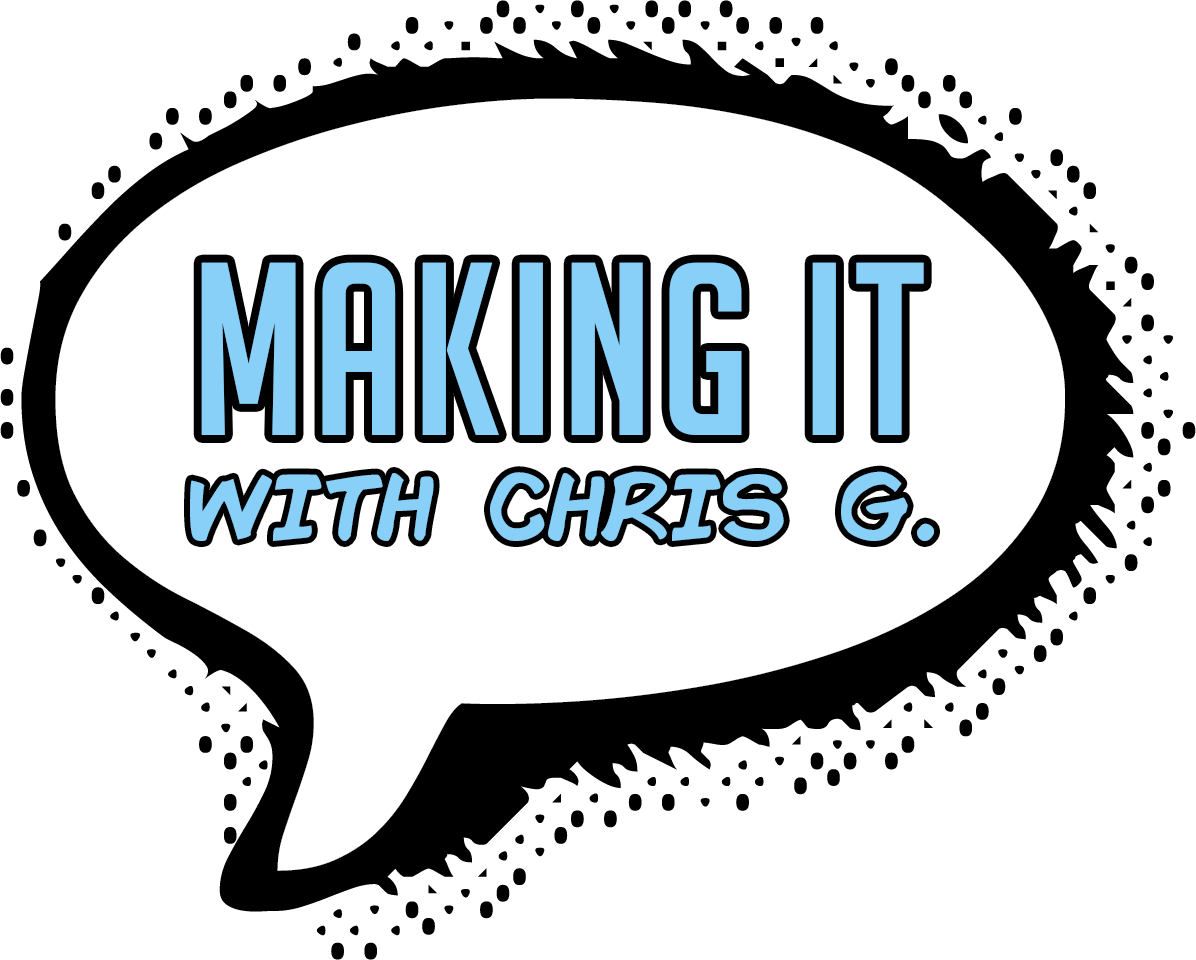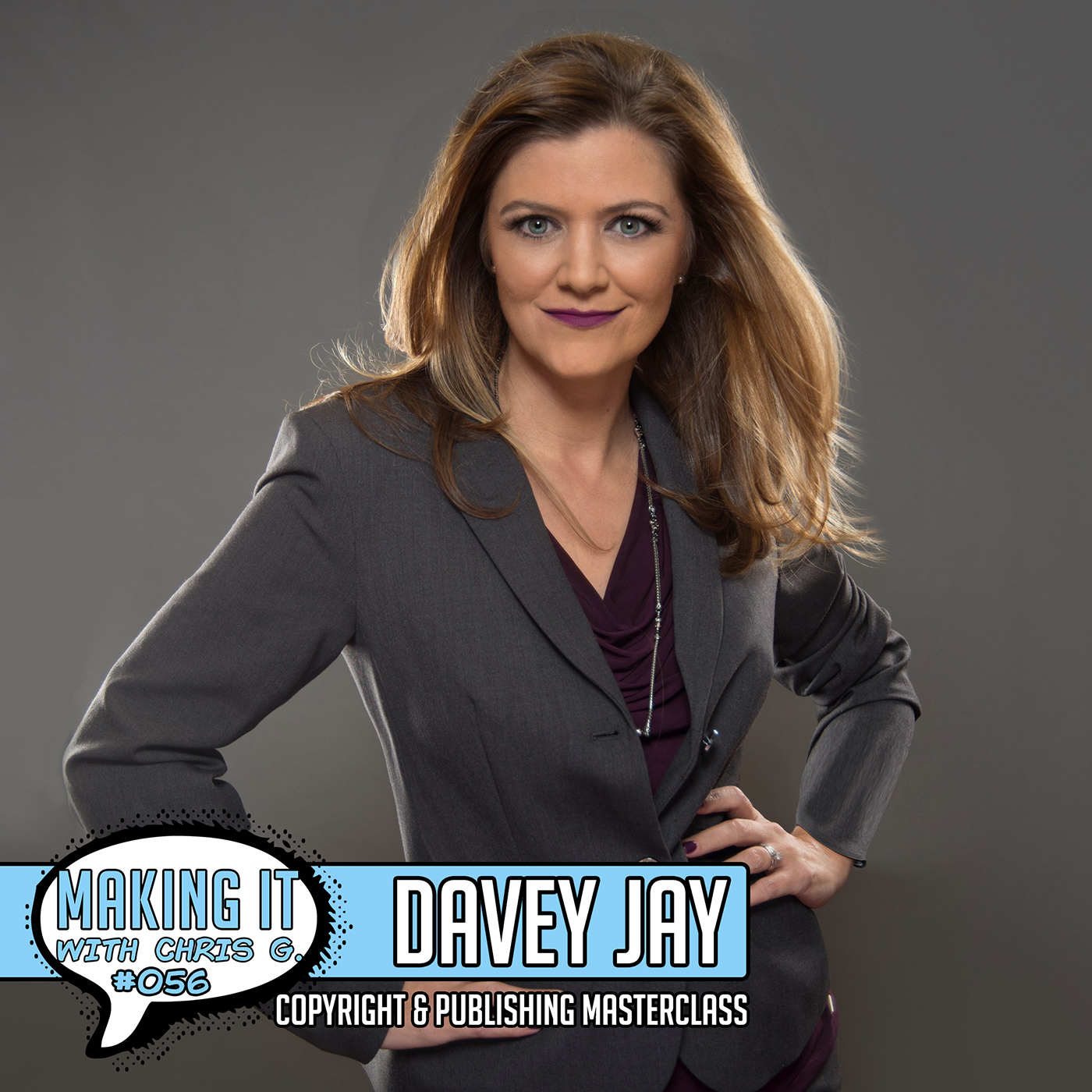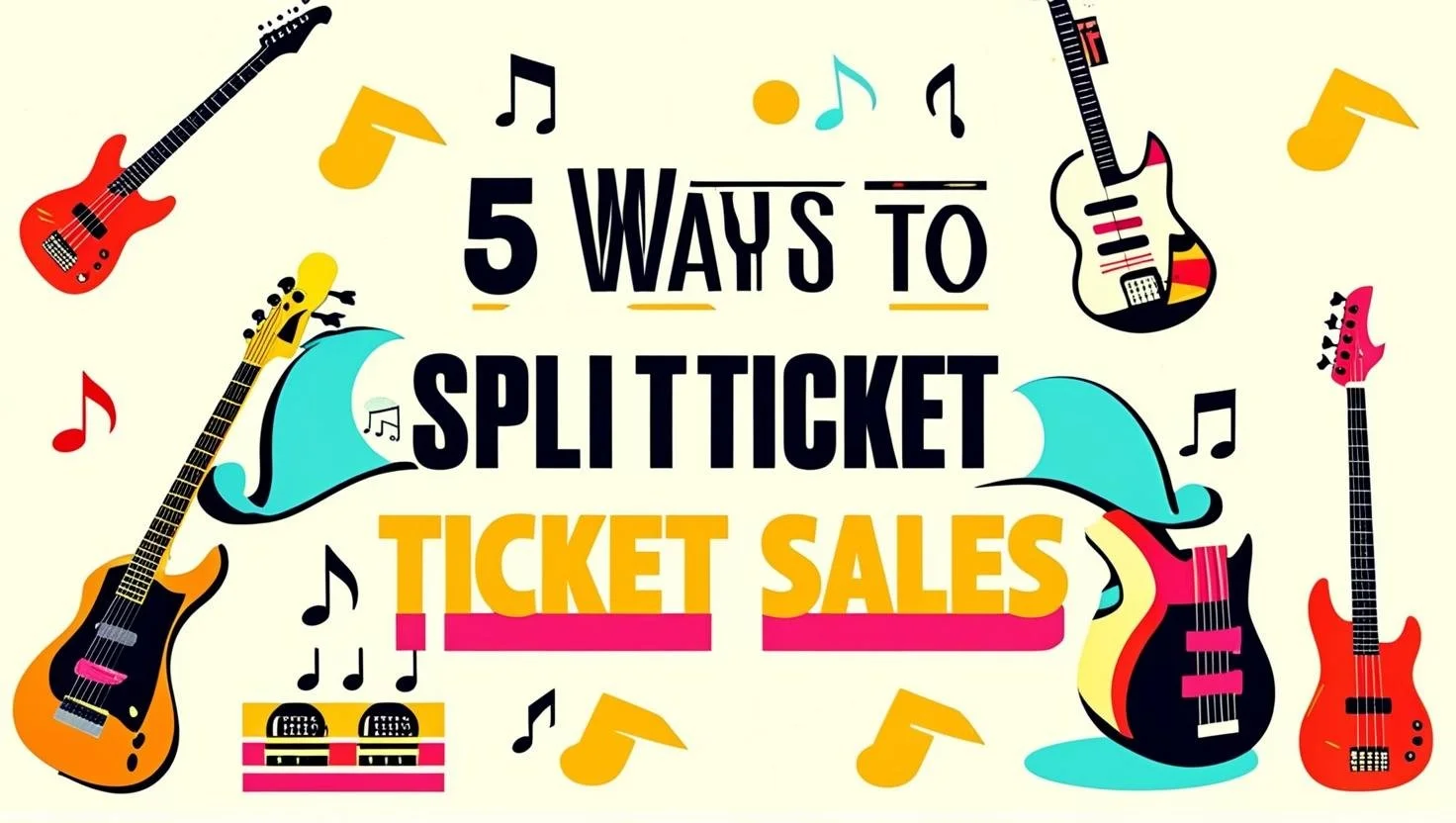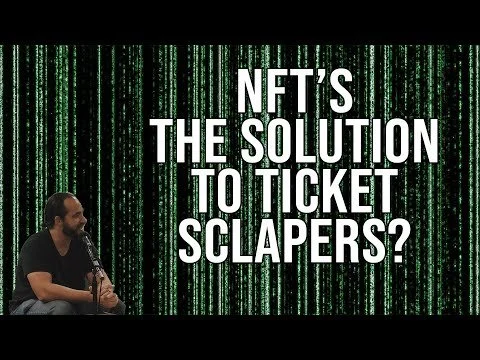You can also listen to this episode on iTunes | Stitcher |
Davey Jay returns to the podcast for a copyright and publishing foundation masterclass. In this episode we discuss everything you need to know to get started with building a foundation knowledge of how copyright and publishing works. Davey Jay discusses the benefits of registering your copyright. We cover how mechanical royalties, performance royalties, and synchronization licenses work. Also, you’ll learn which codes you need to obtain to make sure all of your online streams and digital plays are being tracked correctly. The benefits of SoundExchange, and why every artist should sign-up. How do you properly cover or sample a song, and make money from it, and much more.
To learn more about Davey Jay, check out our round one episode on the show, where we discuss how she got started as an entertainment attorney, tips for those wanting to get into entertainment law, common deals, red flags with record contracts, and much more.
A few Copyright & Publishing terms to be familiar with:
Mechanical Royalties: Each time a song is reproduced on a physical or digital recording, the song owner is entitled a payment from the company doing the reproduction. The standard per copy set by the United States Copyright office is $0.091.
Performance Royalties: Every time the song is performed live (by the original artist or a cover), or the song is played on radio, over a jukebox, over speakers at a business, non-interactive streaming and interactive streaming, or any other public setting, the songwriter is entitled a performance royalty fee.
Synchronization License: A song used in sync with video, such as YouTube, Commercials, TV Shows, Video Games, or any other video, the song owner is entitled a payment at a negotiated rate, by the company using the song in their video.
Performance Rights Organizations (PRO's): In the United States, those are ASCAP, BMI, and SESAC. These organizations represent the songwriters and publishers, and collect performance royalties. SOCAN in Canada, and PRS in England.
Two Copyrights for a Song: One for the composition (melody and lyrics), and one for the sound recording (the actual recording of the song, aka the Master). Register at https://www.copyright.gov/.
Harry Fox Agency: Handles mechanical licenses.
















